Beneath the sun’s warm embrace, Portugal hides a tapestry rich with the threads of a distant past. Here, African and Moorish influences are interlaced with every corner of its cultural landscape—a story of legacy and resilience calling to be told. Join us as we delve into the echoes of these ancient echoes still resonant today.

Moorish Heritage in Sintra
During the Renaissance period in Europe, the terms “Moor” and “blackamoor” were often used to describe individuals with dark skin, regardless of their origin. In 711 AD, a group of North African Muslims led by the Berber general Tariq ibn-Ziyad conquered the Iberian Peninsula, now modern-day Spain and Portugal. The ancient Castelo dos Mouros stands tall in Sintra, a beacon of a time when the Moors brought their architectural prowess to the Iberian peninsula. Within these stone walls, one can almost hear the echoes of a garden’s past, where horticulture flourished under a new flag of influence.
Brilliant Blues: The Azulejos
As you wander through any Portuguese city, your eyes can’t help but be drawn to the stunning azulejos that adorn countless walls – these brilliant blue tiles are a canvas for storytelling. Although the technique was adopted from the Moors, the iconic blue hue that we now associate with Portuguese azulejos came later, influenced by the Dutch Delftware imported during the 17th century. Over time, the Portuguese took this art form and made it their own, turning buildings into grand tapestries telling stories of the country’s seafaring adventures and historical feats. These tiles are not mere decoration but a bridge between past and present, a ceramic diary of Portugal’s journey through time. Those iconic tiles are framed within the context of Portugal’s vibrant history.
Melodies of Moorish Legacy
Within the winding streets of Lisbon’s Mouraria district, the harmonies of the past play a melancholic dance with the present. African music has intricately woven itself into the fabric of Fado, the country’s most heartfelt musical expression, creating a captivating symphony that is truly Lisbon.
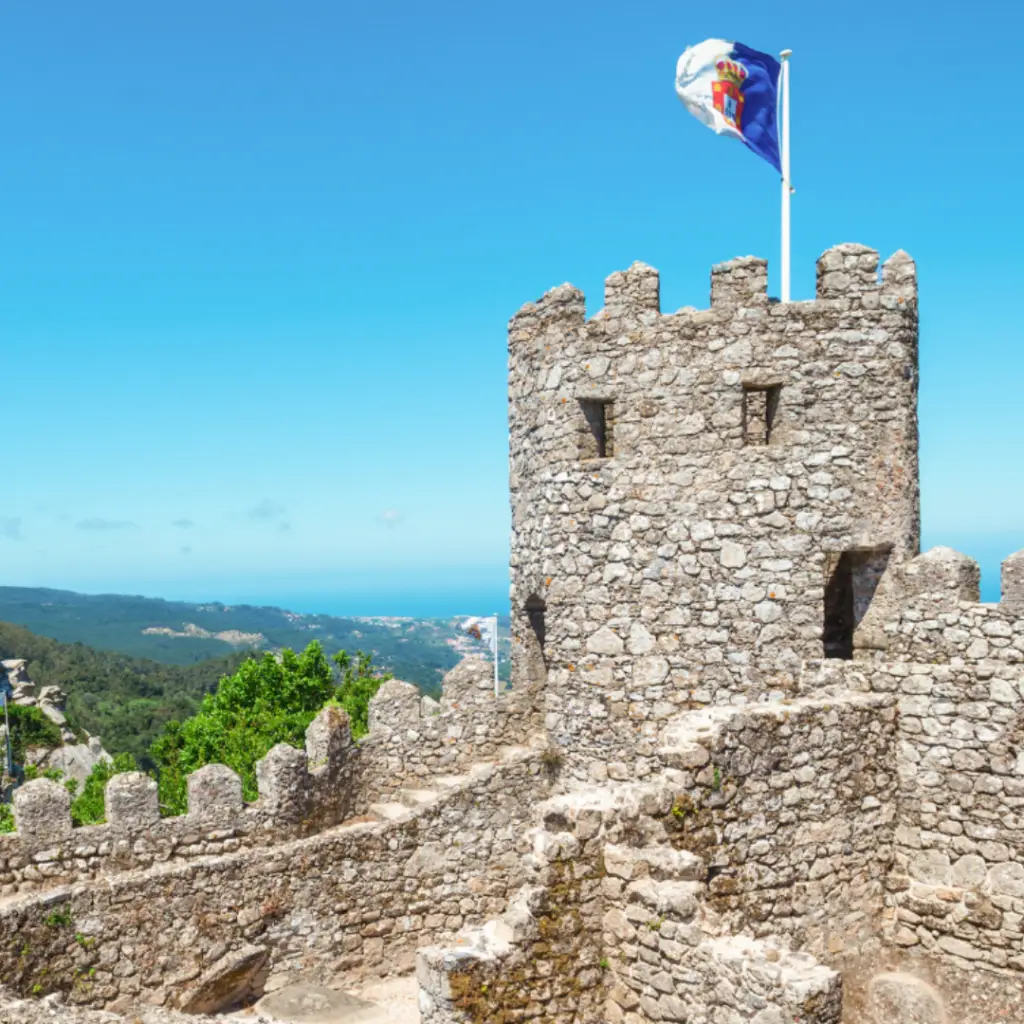
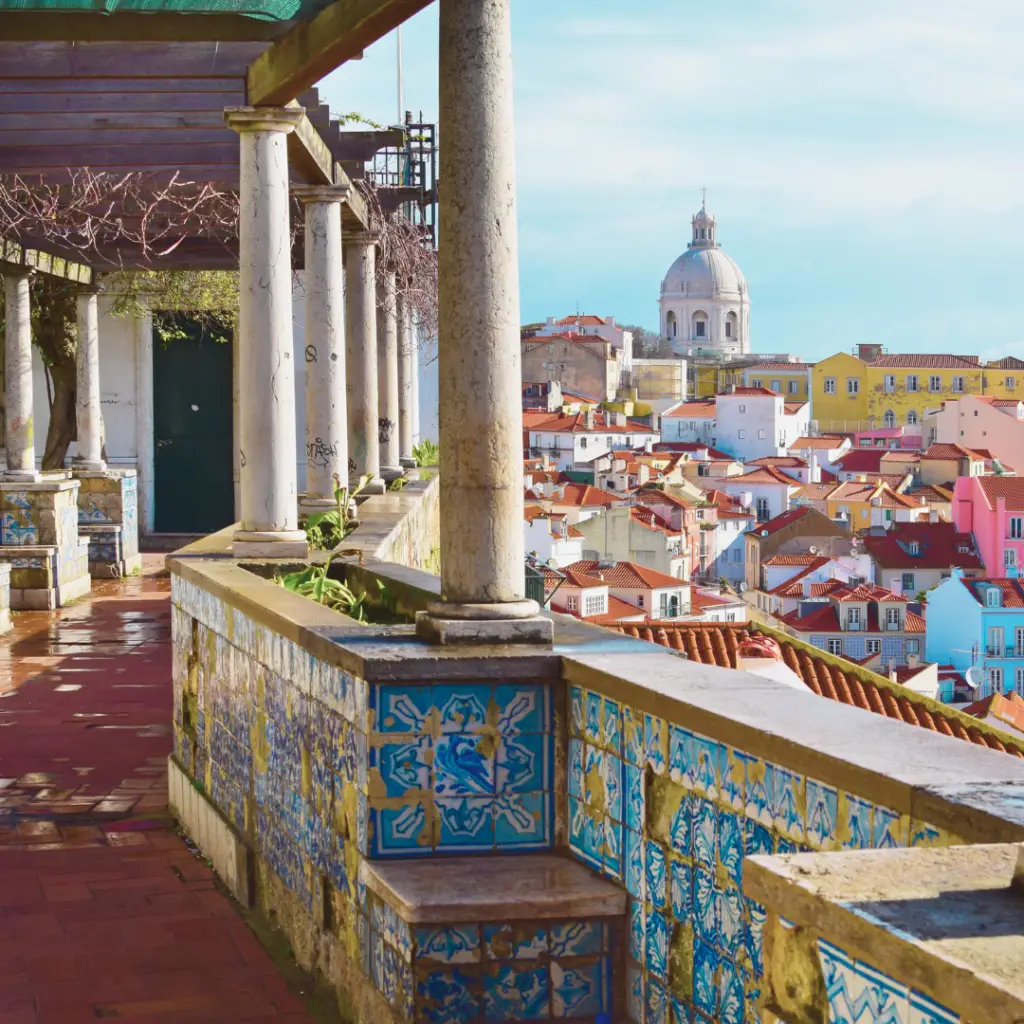
A Bite of History
Navigate the cobbled streets, and you’ll likely be lured by the rich, spicy aroma drifting from Portuguese kitchens. A culinary narrative spiced up with the legacy of Moorish heritage. It is inextricable from the powerful influence of African flavors and ingredients that arrived during and after the era of exploration.
Waves of African Roots in Portuguese Soil
From the early Moorish heritage to the sobering commencement of the Western slave trade ignited by Portugal’s Age of Discovery, African roots have been firmly planted in Portuguese soil. The movement brought a chapter of darkness and new communities that shaped the nation. Lisbon’s vibrant African neighborhoods stand today as a testament to cultural fusion and the enduring spirit of its people.
Royal Ties and Moorish Bloodlines
Tracing the intricate lineage of Portugal’s nobility reveals an unexpected blend of cultures and continents. Royal bloodlines reflect stories of African and Moorish ancestries, symbolizing a multicultural past and extending its reach into Portuguese society’s fabric.


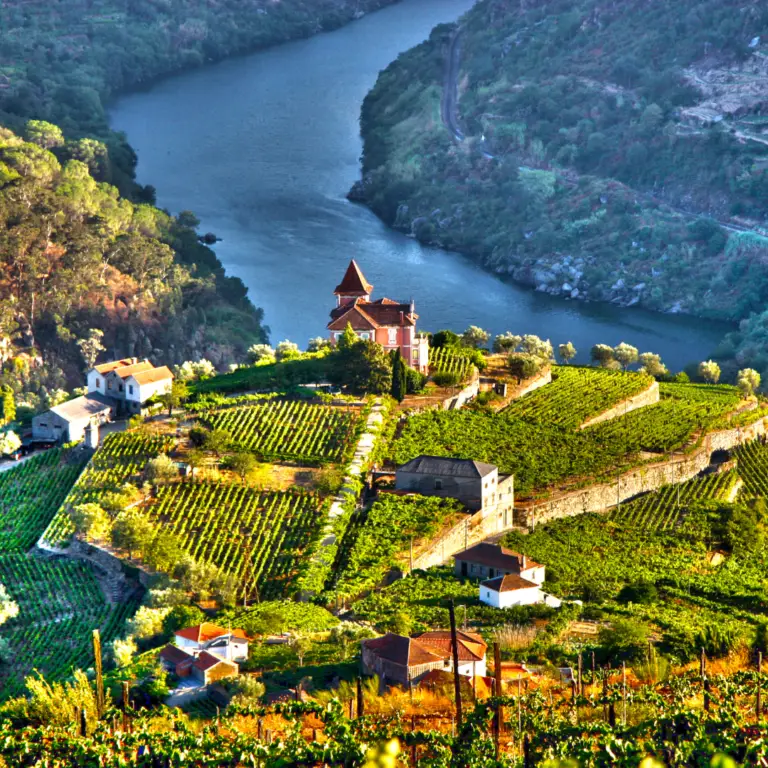
Living Archives: Afro-Portuguese Families
Afro-Portuguese families serve as living archives, their homes breathing museums that curate the legacy of their ancestors. These families are a testament to the shared history and dynamic heritage, embracing an identity forged by centuries of African presence in Portugal.
Finale
Our journey ends, but the tribute to the African legacy endures—a legacy cast in the stones of ancient castles, heard in the sorrowful songs of Fado, savored in the zesty zest of Portuguese dishes, and celebrated in the buzzing life of Lisbon’s African quarters. In these living landscapes, Portugal pays an unspoken homage to the beats of Africa that continue to pulse through its cities and seaside.
A Soulful Epicurean Experience
Join us on this specialty curated river cruise, shining a light on Black history and culture along the Douro River in 2024. Explore the history of the Black and African diaspora in Lisbon and throughout Portugal along the breathtaking Douro River.
Experience 3 nights in Lisbon, plus a luxury 7-night River Cruise on the Douro River in Portugal. Open For Booking While Space Is Available!
#PortugalHistory #MoorishInfluence #TravelDeep .
Have you ever considered river cruising? If not, check out this article and explore why you should try it.
The Secret Of Connecting With Like-Minded People: The Key To Your Happiness


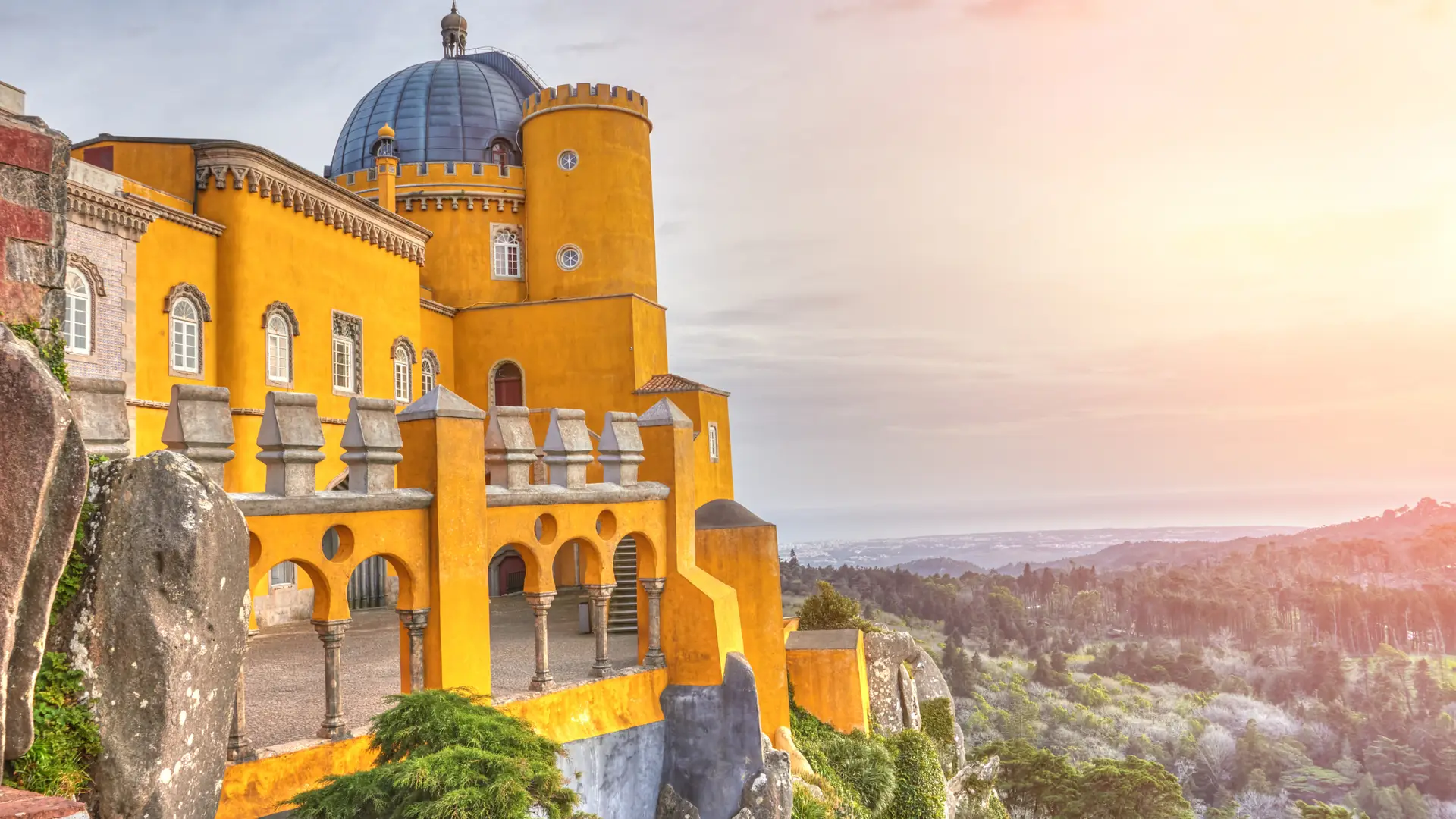







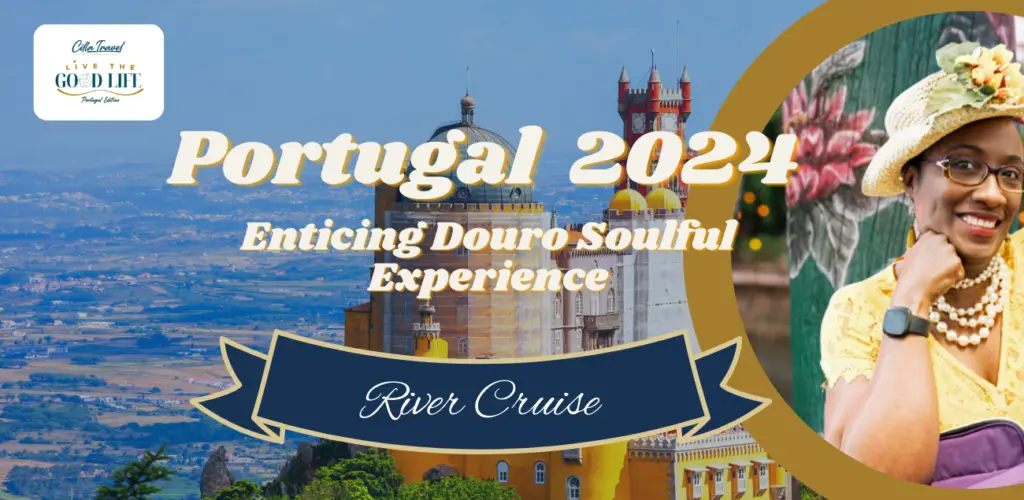
13 Responses
I love the idea of checking out Portugal. I had no idea it had such a rich history and is so beautiful. I definitely will have to put this on my bucket list of places to check out. I’ve known some people from Portugal that were very cool, so I think this would be a pretty cool place to check out hopefully I can one day soon. Have a good day.
Hi Jake, thank you for your comments! I hope you do get a chance to visit Portugal one day. Live the dream!
I have just read your fascinating article and I must say I have learned a bit here. My wife’s family are from Portugal so I look forward to discussing this with them and seeing how much of this they are aware of. I personally had no idea how much the Africans and Moors influenced the Portuguese culture. Thank you for this fantastic post.
Hi Ryan,
These are tough conversations. Be sensitive when having these discussions. She may or may not be aware. However, the Moors ruled the entire Iberian Peninsula for about 800 years before the formation of Portugal and Spain. About other Africans, the Atlantic slave trade began in 1444 when Portuguese traders brought the first significant number of enslaved people from Africa to Europe. By the 1530s, the trade had shifted direction, as Iberian ships sailed first to the African coast for captives and then to the Americas for forced labor. Nearly 500,00 Africans were sent from the Iberian peninsula to Europe and the Americas. There were also five Portuguese colonies on the continent of Africa (Mozambique, Angola, Guinea Bissau, Cape Verde, and Sao Tome and Principe). After independence following the Portuguese Colonial War in the 1970s, some Africans from the former colonies moved to Portugal. Currently, only about 1.15% of Afro-Portuguese people live in Portugal. The presence of Africans has influenced Portuguese culture despite history often omitting it from discussions of the Age of Discovery.
Thank you for your very thoughtful comments.
Hello! I just been to Portugal and I didn’t know all that! I’m absolutely fascinated by Portugal’s hidden history!
The Azulejos and their journey from Moorish roots to Portuguese tales are a work of art!
The Afro-Portuguese families as living archives? Mind-blowing! And that river cruise in 2024 sounds like a soulful adventure.
Small Question: Have any of you explored Portugal’s cultural tapestry? If yes, could be nice if you share your favorite discovery!
Hi Leonardo, I have a colleague who relocated to Lisbon this summer! I plan to meet up with her there. The African and Moorish heritage is a new one for me but I will be blogging all about it when I return. I also have a business trip to Portugal coming up too. Thanks for your comments.
Cheers!
Hey, thanks for outlining the different African influences in Portugal.
They’re only a thin strip of ocean away from each other, so it makes sense they would have some interlocking and important history. The pictures you included also really helped to complement the message as well (and beautiful photo up top, by the way – it’s almost like I’m there).
Oh, the colors of the Pena Palace. Is it gorgeous? Travel truly feeds the soul. There is nothing like being there. Pictures and movies don’t do it justice. Thank you for your comments Ben.
Cheers!
Hi Cilla,
Your article on Portugal’s rich tapestry of African and Moorish influences is engaging. You’ve beautifully captured the essence of how these cultures have shaped Portugal’s history, architecture, music, and cuisine. I’m particularly intrigued by the influence of Moorish architecture in Sintra and the African roots in Fado music. However, I’m curious about the contemporary representation of these influences in modern Portuguese society. How do you think these historical influences manifest in today’s cultural and social life in Portugal?
Thank you for your work and for sharing such captivating insights!
Best regards,
Makhsud
Hi Makhsud, there is actually a movement by an organization of Djass – the Association of Afro-descendants, who is working on getting contributions and heritage of Portugals Afro-Portuguese population recognized. It appears, that this group of Portugese people have been written out of history (so to speak). They are calling for a reckoning.
African diasporans have lived in the country for hundreds of years. Some recent immigrants may have come after the colonial wars ended in the 1970s.
There is also a growing ex-pat community in Lisbon. The Portuguese government was offering a 10-year tax break to foreigners who moved there to live. Many people from the US have been moving to Portugal to take advantage of lower housing costs (for them). A number of these expats are African American.
Marriott Bonvoy Traveller wrote an interesting piece on the tourism sector and African Roots tours. https://traveler.marriott.com/lisbon/african-history-in-lisbon/
Thank you for your thoughtful comments, Makhsud. Cheers!
I will be taking a trip to Portugal in 2 weeks, I have been studying up on things to do and what to expect while abroad. I found your article most interesting and very helpful.
This is my first trip out of the US ever so I am pretty excited to be going on this tour of Portugal. We will be starting in Lisbon, visiting Porto and the final destination is Madeira, I will be looking out for the rich African and Moorish influences you mentioned.
I can hardly wait to walk the cobblestone streets and take in the rich art of the azulejos. And being a cook of 25+ years, I am looking forward to some traditional Portuguese food.
Thanks for this awesome article, I have it bookmarked for further reading later.
Stacie.
Thank you for your comments, Stacie; I know you will enjoy your trip to Portugal. Please feel free to download my FREE Portugal Destination Guide. I hope it helps. Cheers! https://cillatravel.online/portugal-travel-guide
This really simplified things for me, great work!